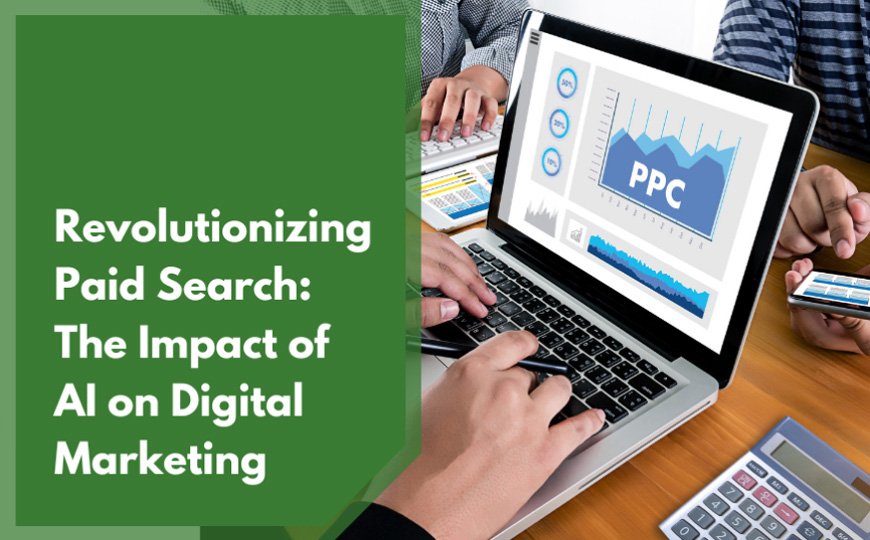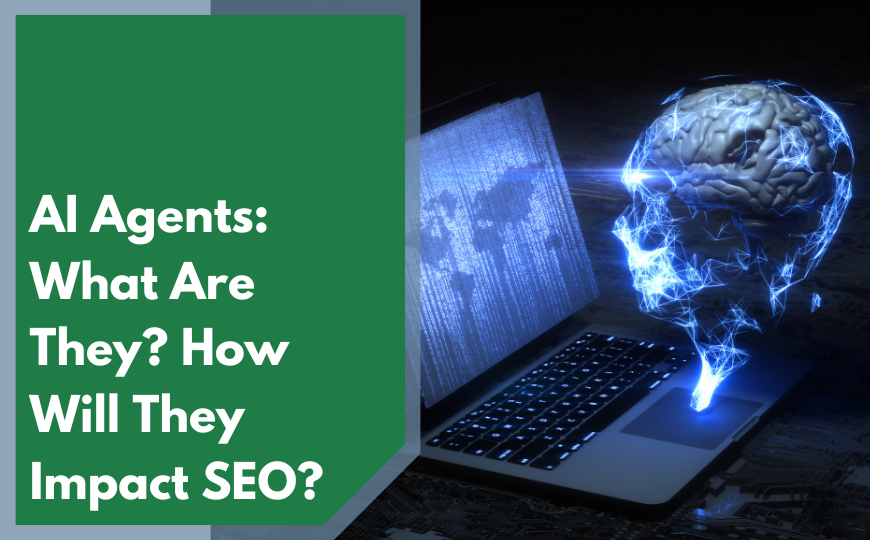As B2B companies continue to adjust marketing strategies over the years in response to advancing technology, paid search remains a consistent tactic to drive targeted traffic and reach key leads. With the recent explosion of artificial intelligence methodologies, the landscape of paid search has faced significant transformation. In this article, let’s take a look at how AI can be a reliable instrument in your paid search toolkit and result in your digital marketing strategy becoming smarter, faster, and more effective.
The Role of AI in Paid Search
AI is most often incorporated into existing functions because of how it uses automation and learning algorithms to streamline processes. Such techniques in paid search assist digital marketers with the ability to refine and enhance practices like analyzing data, learning from it, and using that new knowledge to offer better advertising options.
More specifically, AI takes machine-learning algorithms and data analytics to improve advertising efforts like automating bid management, tailoring ads based on user behavior, and predicting market trends to proactively adjust strategies. Each of these tactics is crucial for any B2B company with a lengthy sales cycle and complex purchasing journey.
AI Processes to Implement
While knowledge is power, it is not enough to understand new practices. For a B2B company to stay ahead of the competition, AI-driven methodologies must be implemented to ensure that all paid search efforts remain efficient, effective, and adaptable for a streamlined process. Here are some of the tactics to put in place.
- Automate Bidding Strategies: AI makes smart bid adjustments in real-time, giving your ads a better chance of showing up at the right time, in front of the right audience, and with the best budget allocations that last longer than they did in the past.
- Optimize Keywords: AI tools remove the headache of trial and error by sifting through tons of data to pinpoint the best keywords. Search engines and ad platforms now identify search intent, better matching ads to search queries even when specific words are not present. This enables ads to show for relevant searches, even when keywords may have been left out during the planning stage.
- Personalize Ads: AI helps create ads that resonate with your audience, tailoring each message to speak directly to each potential customer.
- Use Predictive Analytics: AI predicts future trends, giving you a clear advantage and helping you stay ahead of the curve.
As the future holds even more sophisticated AI tools designed to handle complex tasks and provide deeper insights, the key is to stay informed and adaptable to these emerging technologies.
Best Practices for B2B Companies
While the further integration of AI in paid search promises numerous benefits, it also poses significant challenges and considerations. On the positive side, AI can significantly enhance targeting accuracy, reduce wasted ad spend, and provide deeper insights into consumer behavior. This level of precision is particularly beneficial when dealing with niche markets and requiring a high degree of specificity in paid advertising campaigns.
In contrast, several challenges immediately arise, particularly when it comes to data and ongoing expansion. AI systems are only as good as the quality of the data they process, making it crucial for B2Bs to have access to accurate and comprehensive data sets. Additionally, as AI technologies rapidly evolve, marketing teams must acquire and maintain the necessary skills and knowledge to effectively leverage these tools.
To navigate this changing landscape, B2B businesses should consider the following tips:
- Embrace Automation: Start with a clear goal for what you want AI to achieve in your campaigns. Utilize AI for automating routine tasks to enhance efficiency, such as bid management and A/B testing.
- Invest in Quality Data: Ensure that your data collection methods are robust, as AI-driven paid search is heavily reliant on data quality. Keep an eye on your AI-driven campaigns and learn from the results.
- Focus on Personalization: Use AI to create highly personalized ad experiences tailored to the specific needs and behaviors of your target audience. At the same time, consider how to handle data privacy responsibly, balancing the power of AI with practical and ethical considerations.
- Learn and Adapt: Stay informed about the latest AI developments and be prepared to adapt your strategies accordingly. Since the learning curve for using some of these technologies can be steep, invest in training for B2B companies.
- Partner with AI Experts: Consider collaborating with AI experts, especially if your in-house team lacks the necessary expertise. Find someone you can trust to help you navigate relevant updates in search algorithms, new ad formats, and changes in consumer behavior since those can significantly impact ad performance and campaign success.
Take the Next Step with a Marketing Expert
The integration of AI into paid search is not just a fleeting trend but a fundamental shift in digital marketing strategies. Because we understand and leverage the power of AI, we at DirectiveGroup can help you optimize your paid search campaigns like never before, achieving greater efficiency and effectiveness throughout your marketing efforts.
As we embrace this new era together, your B2B will continually evolve, learn, and adapt to the changing digital landscape. Remember, the future of marketing is not just about the technology you use; it’s about how well you use that technology to meet your business goals. Now is the time to explore, experiment, and excel in AI-driven paid search.
To learn more, check out https://www.idx.inc/blog/paid-media/how-ai-will-impact-search.






